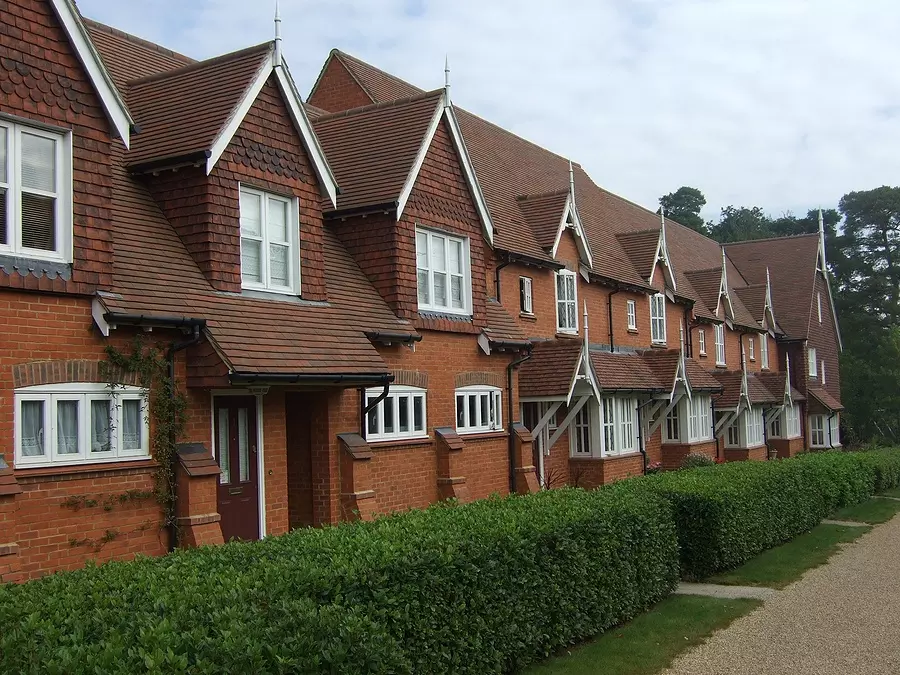Our comprehensive guide provides expert insights an d legal advice on addressing this common property dispute. Discover your rights, potential solutions, and steps to take when faced with encroachment. Whether you're a homeowner, landlord, or property investor, navigate the complexities of property boundaries with confidence.
My Neighbour Has Built Over My Boundary
The sanctity of one's property boundaries is a cornerstone of property rights and peaceful coexistence within a community. Unfortunately, property boundary disputes can arise, causing tension and legal quandaries among neighbours. One of the most common and contentious issues in this realm is when a neighbour encroaches upon your property by building structures beyond their own boundaries. This breach of property lines can lead to a myriad of problems, ranging from minor inconveniences to full-blown legal battles.
Picture this scenario: You've lived in your beloved home for years, enjoying the familiarity and comfort it brings. However, one day you notice that your neighbour has erected a fence, extended their garage, or even constructed an entire addition to their house, all clearly extending onto your property. The shock and frustration are undeniable, leaving you wondering what your rights are and how to address this unsettling situation.
In this article, we will explore the complexities of property boundary disputes, focusing on the scenario where your neighbour has built over your boundary. We will delve into the potential legal recourse available to you, the importance of effective communication with your neighbour, and the role local ordinances and property records play in resolving these conflicts. Whether you're facing this issue currently or wish to prepare for such a situation, understanding your rights and options is essential for finding a fair and peaceful resolution to a neighbourly predicament that can, unfortunately, turn into a legal quagmire.

Talk To Your Neighbour
When you discover that your neighbour has encroached upon your property by building structures beyond their boundaries, it can be a disconcerting and frustrating situation.
However, before diving into legal battles or pursuing formal actions, it's crucial to consider open and respectful communication with your neighbour as the initial step in resolving the issue.
Approach your neighbour at a time when both of you can sit down calmly and discuss the matter without distractions. Politely express your concerns, and be open to listening to their perspective as well. Avoid confrontation and accusations, as this may only escalate the situation.
If you have property surveys, deeds, or other relevant documents, provide copies to your neighbour to support your claims. It's essential to have evidence that clearly establishes the property boundaries and the encroachment.
While your immediate instinct might be to demand the removal of the encroaching structure, consider alternative solutions that might be more agreeable to both parties. This could involve renegotiating property boundaries or even purchasing the encroached-upon portion if your neighbour is willing. If direct communication fails to yield a resolution, consider involving a neutral third party, such as a mediator or a community association, to facilitate the discussion. Mediation can often help bridge the gap between conflicting parties and find mutually acceptable solutions.
While speaking to your neighbour may not always result in an immediate resolution, it is a critical first step in addressing property boundary disputes. It demonstrates your willingness to resolve the matter amicably and may help avoid costly legal battles. If, however, communication fails to bring about a satisfactory solution, the next step may involve seeking legal advice or involving local authorities to enforce property rights.
Talk To A Boundary Disputes Expert
When you find yourself entangled in a property boundary dispute with a neighbour who has built on your property, seeking the guidance of a boundary dispute expert can be a crucial step towards finding a resolution. These professionals possess the knowledge and expertise required to help you navigate the complexities of such disputes. Here's why consulting an expert is essential.
Boundary disputes can be intricate, often involving legal intricacies, historical property records, and intricate land surveys. A boundary disputes expert is well-versed in understanding property lines, survey reports, deeds, and relevant laws, allowing them to provide informed guidance. These experts can objectively assess the situation, offering an impartial perspective that can help de-escalate tensions between you and your neighbour. They can determine the extent of the encroachment, the legality of the construction, and potential solutions.
Boundary dispute experts often possess mediation skills, which can prove invaluable in facilitating a productive dialogue between you and your neighbour. They can act as neutral third parties, helping both parties find common ground and reach an agreement that benefits everyone involved. If the dispute escalates to the point where legal action is necessary, a boundary disputes expert can provide you with invaluable legal insights. They can recommend reputable property attorneys and testify as expert witnesses in court if required.
Every property boundary dispute is unique, and a boundary disputes expert can provide customized solutions tailored to your specific circumstances. Whether it's negotiating a boundary adjustment, pursuing an injunction to stop construction, or seeking compensation for damages, they can guide you on the best course of action.
When facing a neighbour who has built on your property, consulting a boundary disputes expert is a prudent step. Their expertise, objectivity, mediation skills, and legal knowledge can significantly enhance your ability to navigate the dispute successfully and reach a resolution that protects your property rights while maintaining neighbourly relations.

When dealing with a situation where your neighbour has encroached upon your property, it's essential to understand the obligations that your neighbour must meet, both legally and ethically. Here are some key obligations they should consider:
First and foremost, your neighbour has a legal obligation to respect property boundaries. They should not build, plant, or encroach upon your land without your permission. Your neighbour is obligated to comply with local zoning laws, building codes, and property ordinances. If their construction violates any of these regulations, they may be legally required to rectify the situation.
Ethical and neighbourly conduct involves maintaining open lines of communication. If your neighbour intends to make changes to their property that could affect your land, they should discuss it with you beforehand and seek your consent if necessary. If your neighbour's actions have caused damage to your property, they have an ethical obligation to take responsibility for those damages and work towards resolving the issue.
In case of a dispute, your neighbour should engage in a constructive dialogue to find a solution that is fair and respects both parties' rights and interests. If a court becomes involved in the dispute, your neighbour is legally obligated to comply with any court orders or judgments related to the encroachment issue.
Understanding these obligations can be crucial in resolving property boundary disputes. If your neighbour fails to meet these obligations, you may need to pursue legal avenues to protect your property rights and find a fair resolution to the situation.
When a neighbour encroaches on your property, leading to a boundary dispute, it's natural to wonder whether you can seek compensation for any damages or losses you may have incurred. While compensation is possible in some cases, it depends on various factors.
If your neighbour's actions have caused tangible damage to your property, such as structural damage, landscaping destruction, or harm to your personal belongings, you may have a valid claim for compensation. If your neighbour's encroachment violates local zoning laws, building codes, or property ordinances, you may be entitled to compensation for any financial losses incurred as a result of their non-compliance.
In cases where the encroachment negatively impacts the value of your property, such as making it less marketable or reducing its appraised value, you may be eligible for compensation for the diminished value. If the boundary dispute escalates to the point of legal action, compensation may be awarded as part of a legal judgment or settlement agreement.
In some instances, compensation may be negotiated through discussions with your neighbour. They may agree to pay for damages or other losses as part of a mutually acceptable resolution.
It's crucial to document the damages, gather evidence, and consult with legal professionals to determine whether you have a valid claim for compensation. Keep in mind that the availability and amount of compensation can vary greatly depending on the specific circumstances of the dispute, local laws, and the willingness of your neighbour to cooperate in finding a resolution.
Are you looking for boundary disputes surveyors in Dartford, Tonbridge and Kent?
Contact our expert witness surveyor to discuss your requirements.

